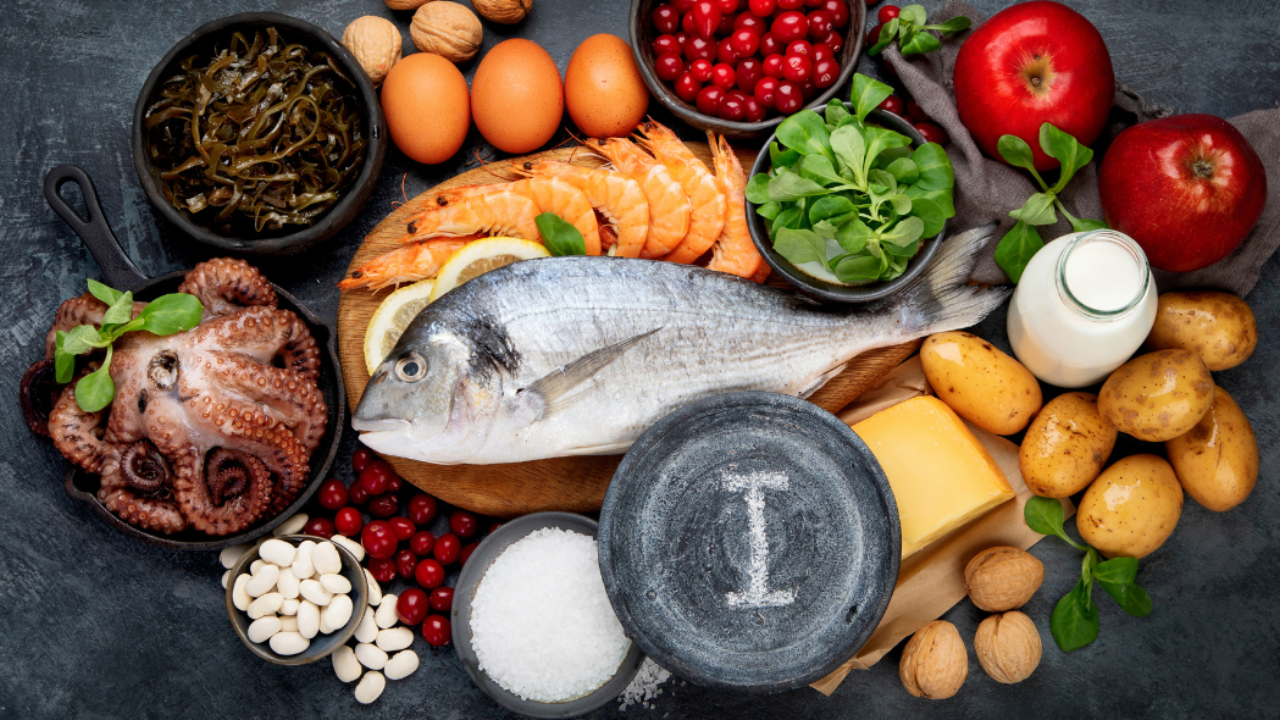Iodine for Hormonal Health

Minerals are key building blocks that are essential for life, think of them as bricks building the structure of your body. Without a good strong foundation, a building could start to crumble and fall and for us, the consequences of mineral imbalances can include ill health, disease, and even death.
In an ideal world, we would obtain our minerals from our diet, as our body can’t produce them. Minerals are found in our soil and water, they are taken up by plants or animals that we consume. But depending on where you live this can be a huge problem as certainly locations are known for having very low mineral reserves. Have you heard of the goiter belt in the US? This area around the Great Lakes is known to have low iodine levels in the soil. And if it's not in the soil, it's not in the food locally grown either.
The first element of getting our minerals from our food is the presence of the minerals in the soil, in the first place, and the second is actually eating the foods that are known to be high in the mineral you are trying to increase. In the case of iodine, the better sources include seaweeds such as nori, and seafood such as cod. If you are not getting iodine into your diet, supplementation may be the best option.
Another problem with getting adequate iodine into your body is the role of the other symbiotic nutrients. I think of iodine and sodium as best friends who help each other out. Their friendship groups also include iron, magnesium, selenium, zinc, Vitamin A, vitamin B, and Vitamin C. Any imbalance with these nutrients affects the levels of the other nutrients.
The next issue with iodine is its sibling rivalry with the other halogens. If we looked iodine up on the periodic table, we would find it on row 17 with the halogens. The other main halogens include fluorine, chlorine, and bromine. These other halogens negatively impact iodine and have been found to have goitrogenic effects. Changing the whole body metabolism of iodine. It pulls iodine out of the body and dumps it in the urine, for excretion. This is a massive problem as we are surrounded by these other halogens. Fluoride is the drinking water in many locations including Australia and the US, I really hope we follow in the footsteps of many European nations that have banned this. In the meantime please drink filtered water. Bromines are used as fire retardants in many of your household items and its often used as a pool chemical in hot tubs and swimming pools. Best to swim in natural sources like the ocean or a lake. Bromines are also found in many grain-based products such as cereal, pasta, and bakery foods.
While we are discussing goitrogens is worth mentioning other dietary goitrogens e.g. soy and raw cruciferous foods such as cauliflower, broccoli, kale, cabbage, and brussels sprouts as these also disrupt iodine metabolism. Changing how you prepare these foods decreases the impact they have on iodine. In regard to soy, fermenting it disables the goitrogenic properties as does cooking the cruciferous family.
So why should we care about iodine? Remember I said that minerals are like building blocks, different minerals have a different affinity for different parts of the body. For example, iron helps build blood, and calcium helps to build bone. Iodine helps to build your glandular tissue. If you don’t have enough iodine in your body you can’t produce any hormones!
The thyroid gland is the biggest consumer of iodine. Goitre, thyroid nodules, and hypothyroidism are signs of deficiency. Other signs relevant to the midlife Wonder Woman include the thyroid's role in regulating your metabolic rate, temperature regulation, energy production, cognitive performance, weight management, heart rate, and mood.
The second biggest consumer of iodine is your breasts. Remember iodine is about the glandular structure so changes in the structure of your breasts e.g. fibrocystic breast disease are linked with low iodine levels.
Your ovaries also need iodine and without enough their structure changes. Iodine-deficient women can produce ovarian cysts and are at risk of developing PCOS.
Did you know that the endometrial lining of your uterus is a glandular tissue? Uterine fibroids are an example of a possible iodine deficiency structural change here. Although fibroids have many possible reasons for their development, I want to make sure you consider iodine as well.
So hopefully you can see now why iodine is so important at this stage of life. Still, I want to stop you before you run out and start self-prescribing as all supplements come with caution, contraindications, and medical interactions.
The biggest thing I want to warn you about is the presence of thyroid antibodies, as iodine can feed the antibodies and has the potential to worsen autoimmune conditions. If this is you, you should work with a practitioner to help support and monitor you over your healing journey.
If you're facing challenges related to iodine or other mineral imbalances, I invite you to schedule a discovery call with me. Let's explore how I can assist you in addressing these issues.


